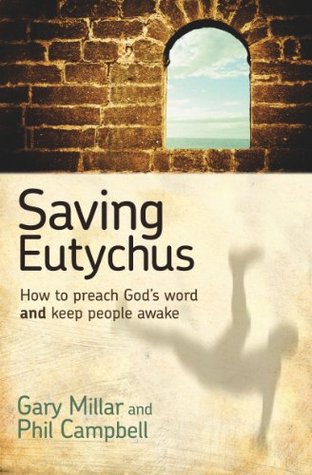More on this book
Kindle Notes & Highlights
by
Gary Millar
Read between
August 6 - August 8, 2020
Saving Eutychus doesn’t just mean keeping him awake. It also means doing our best to keep him fresh and alert so he can hear the truth of the gospel and be saved.
First, resolve to make sure that from now on (whatever your habit has been in the past), you will pray for your own preaching.
The second part of the challenge is this: make sure that your church prays together for the preaching.
The key to preaching, then, is to make the message of the text obvious. Help people to see it and feel it. Help people to understand the text. Paul is talking about what I would call ‘expository preaching’, in which the message of the text is the message of the sermon.
Expository preaching, then, isn’t simply one technique or approach amongst many; it’s the model that allows Scripture to speak most clearly and powerfully.
Preaching that changes the heart, then, is simply preaching that allows the words of God to speak.
Our point is this: if you master the art of natural scripting—writing exactly the words you’d naturally speak, exactly the way you’d naturally say them—then you can eliminate the downsides of scripted public speaking.
“I always repeat the first sentence of a new idea three times, to make sure people stay with me.”
Clarity comes from what you leave out. Clarity comes from focus.
The answer for all of us? Plan to stop a minute or two before people start wishing you would. (And stop thinking you’re Tim Keller.)
The secret? Illustrate the obvious, and the complex ideas will take care of themselves, because your listeners will be fresh and focused enough to stay with you.
lead your listeners towards the text. Instead of quoting it then explaining it, do the reverse. Explain and then show. Prepare them for the logic of what they’re about to see for themselves in Scripture by raising the question the text is about to answer, or by building the logic of the argument that the text itself is about to resolve, or by explaining anything complex that they’ll need to understand to make sense of it. Then, let the words of Scripture close the deal.
The big idea of a passage most often emerges when you spot the repetitions in the text and follow the chain of logic between them.
In the words of Haddon Robinson, “Application starts in the introduction, not in the conclusion”.[8] Here’s the twist: the application comes at the end of your research, but it comes first as you design and build your sermon.
Here’s the goal: make sure you’re totally sold on the big idea of your sermon. Make sure you’re driven by it. Then you’ll know how to say the things you say, because they will come from a heartfelt passion.
If I’ve done great exegesis and preached a sermon packed full of insights that has no ‘so what’ to it, I need to know.


